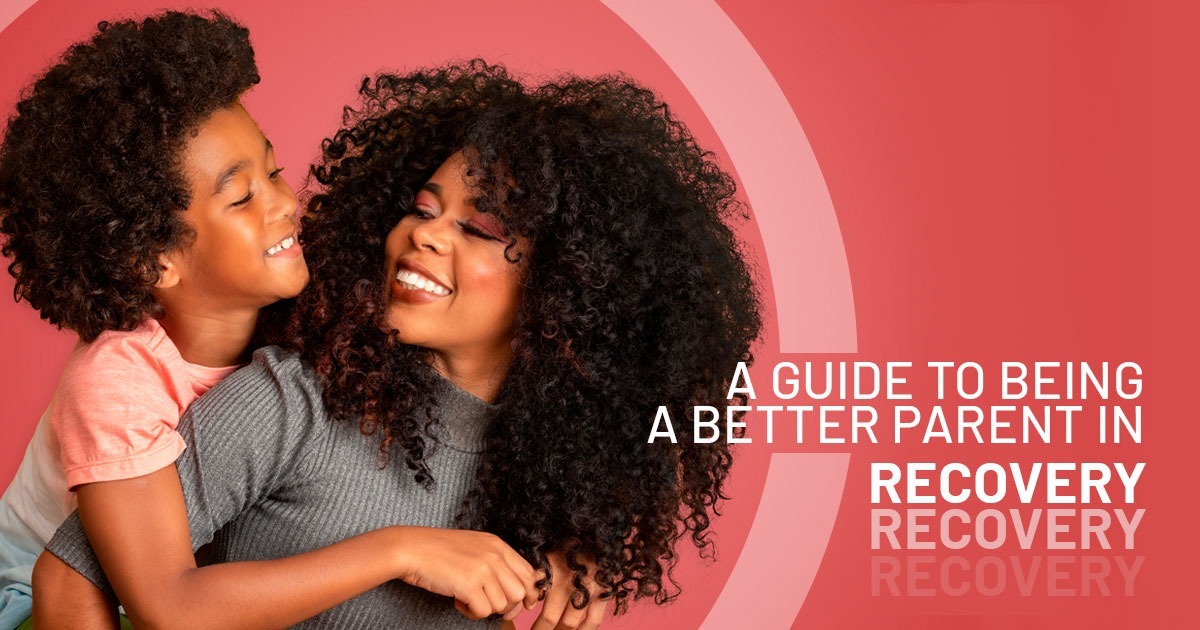
When you’re a woman going through addiction treatment and beginning your life in recovery, you already face immense challenges.
Being a mother can compound those because you may want to repair the damage you feel occurred during active addiction. You may also want to make up for the lost time. Simultaneously, the recovery process is hard work, so prioritizing is critical as you navigate parenting in a new world for you.
The most important thing you can remember is that no one is a perfect parent. Despite your struggles with addiction or mental health, if you show your children love, that’s ultimately what will stand out to them throughout their lives.
You have to show love and compassion for yourself, too, particularly as you are navigating a new situation and new season in your life.
The following are some things to know about being a parent in recovery from a substance use disorder and how to become a positive role model.
How Addiction Affects Families
While it’s emotionally challenging, a big part of true recovery recognizes how your addiction affects your loved ones. Loved ones can include your children, mainly if they are old enough to understand what’s happening. When you can confront these psychological effects head-on, you’re in a much better position to begin to work through them.
Once you leave treatment, you hope you can put the past behind you. While you may be able to put your substance abuse behind you, it’s essential to recognize the lingering effects of being an addicted parent and work to repair those as part of your recovery journey.
It’s challenging to maintain a peaceful or loving home when you’re experiencing alcohol or drug addiction. There may be a lot of conflicts, erosion of trust, and communication can become frustrating. Along with these effects impacting your children, they could also affect your spouse or partner and other people who love you, such as your parents or siblings.
- You might have behaved in a way that would otherwise be out of character for you when you were under the influence of drugs or alcohol or exhibiting addictive behavior.
- Psychology Today estimates 1 in 5 children grow up in a home with a parent who abuses alcohol or drugs.
- Exposure to substance abuse is a form of trauma, and children who grow up experiencing substance abuse in the home are more likely to develop their substance use disorders when they’re adults.
- Children’s personalities are developing during this time and are highly susceptible to what’s happening around them.
When you decide to get treatment, that’s an essential thing you can do to change these dynamics.
- As you choose a rehab program like residential treatment, look for one specifically for women and mothers.
- These programs will allow you to participate in therapy that focuses on rebuilding your relationships with your children and family and reducing the trauma they might have experienced.
- Look for a facility that emphasizes relationships and helps you connect with the resources you need to be a great parent in recovery.
Too often, mothers become discouraged. They feel the damage is done, and there’s nothing they can do; that’s untrue. While substance abuse by a parent can affect children, they’re also highly resilient.
You ultimately want your kids to see you as someone who worked hard and overcame challenges. That’s what you have the opportunity to demonstrate after treatment.
Below are some practical tips to be a better mother in recovery.

Forgive Yourself
Understanding the impact of addiction isn’t about continuing to hate yourself or feel shame, and parents in recovery have to know this.
Instead, it’s about recognizing past challenges and then being able to move forward through that honestly.
To be the best version of yourself for your children, forgive yourself. If you participate in a program with a 12-step foundation, there is a path to make amends for past behavior and start again as part of your addiction recovery.
When you can forgive yourself, you aren’t just helping your children and family dynamic. You’re also reducing your risk of relapse. Shame and guilt are so interwoven with substance use and addiction.
You have to work to rebuild your self-esteem and understand that you are more than your mistakes and addiction.
Set Boundaries
If you feel guilt for things in the past, you might try to be too permissive in your parenting. Permissive parenting is problematic for children, particularly as they get older. Not having firm, healthy boundaries can put your children at a greater risk of developing their own SUD.
Rather than making up for anything by eliminating boundaries, create a loving and healthy relationship with your children that centers on limits. Your children need that discipline and structure.
You want to be a role model rather than a friend. Along with setting boundaries, resist the urge to try and buy affection with gifts.
Your children are going to thrive when they have stability and consistency. You can create routines that focus on spending quality time together rather than buying affection.
Rebuild Trust
If your children are older, they may have lost trust in you during your active addiction. You may have been unable to keep your word, or you might not have been around or shown up for your children in the way they needed you to when dealing with a drug or alcohol use disorder.
Now is when you can start to rebuild that trust. Again, consistency is key here. You should also show up when you say you will and prioritize family time.
Consider going to counseling with your children, so you can relearn how to bond with one another.
Take Care of Yourself
Practicing self-care is vital in recovery. Parents in recovery may be dealing with so much physically and mentally during this time. Self-care isn’t selfish.
Self-care gives you the chance to take care of yourself to give more to your children.
When you practice self-care, you’re also setting an example for your kids about healthy coping skills. Self-care is one of the critical life skills you can and should integrate into your daily life.
Be Mindful
Mindfulness is something that every parent can benefit from practicing—it’s not exclusively beneficial if you’re in recovery. When you’re a parent, no matter the specifics of the situation, it’s stressful. You may have so many worries about the past and the future. Practicing mindfulness brings you back to the moment.
You’re able to remember how important it is to focus on one day at a time.
Everyone practices mindfulness differently, but bringing yourself back into the moment if you’re struggling is one of the best coping mechanisms you can learn in recovery. Being mindful is suitable for managing things that come your way in everyday life and dealing with symptoms of mental health issues.
Ask For Help
Finally, there’s certainly no shame in asking for help when you need it, particularly for single parents. Maybe you have parents or friends who are willing to give you the support you need, even if it’s just providing a listening ear. Don’t be afraid or embarrassed to ask for help.
Over time, the more you put the steps above into practice, the more confident you’ll feel as a parent and the stronger your relationship with your children will be. In your parental role, you want to model healthy behavior and life experiences for your children, and knowing when to reach out for help is part of that.
If you’re ready to start your recovery effort, please contact the team at Anchored Tides Recovery by calling 866-600-7709 to learn more about our specialized treatment center for women.



























